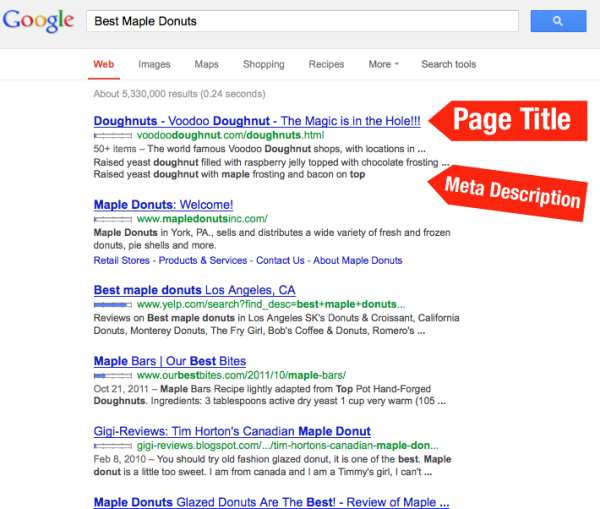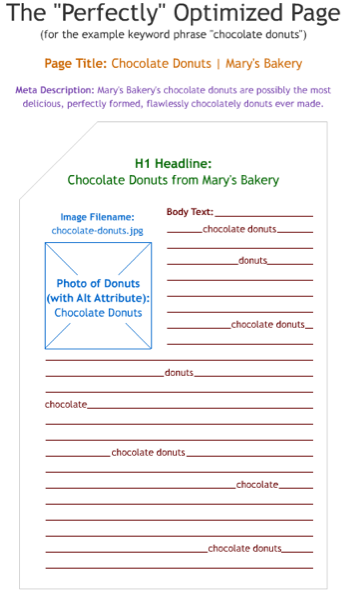When you think about adding keywords to a website you might picture adding extremely complicated formulas and codes into a computer. But the truth is the basics are easier than you might think. Discover the fundamentals about how to add keywords to a website.

Why Should You Know How to Add Keywords to a Website?
By learning how to add keywords to a website you will be able to keyword your own blogs, website pages, and other internet marketing materials. You will also gain context for why SEO is so important for your business.
How Can Adding Keywords to My Website Help My Business?
Adding keywords to your website helps search engines understand what your company offers, and ultimately help grow your business by bringing you more qualified leads. Without Keywords on your website pages there is no way for a search engine to categorize your website and show it to the right people searching for what you're offering.
Think of it this way, a well written paper has a thesis, and supporting arguments that relate to the thesis. Readers have a clear understanding of what the subject is and what the paper is about. This is the same theory behind Google and other search engines. In fact two students from Stanford created Google with this same idea in mind.
A well-made website has a main subject, and often has sub-categories that relate to the main subject. By keywording each of these areas we are able to give a clear picture to search engines, and people searching are able to find you more easily.
For example:
Your Main Subject Might Be: Donuts
Your Sub-Categories or Topics Could Be: Cake Donuts, Donut Holes, Donut Bars…
Choosing Keywords for Your Website
Now that you understand the framework of a site and why it matters it’s time to choose keywords. We use a number of tools and perform extensive research for our keywords; however one tool that is free is the Google Keyword Planner. Simply input your location information and category, then type in the main subject of your website. The tool will generate a number of keywords, and give you stats like these:
Competition: (Low, Med, High) This tells you how many people are trying to keyword for that same word or phrase. The higher the competition the more difficult it is to rank high in Google for that search term.
Global Monthly Volume: How many searches are made per month globally for that term.
Local Monthly: Is determined by the information you put into your search. If you specified your location as the U.S. then it would be the number of monthly searches for that term in the U.S.
While this tool is easy to use, all keywords are not treated the same. In fact some keywords bring you more traffic than others, and some might bring you a lot of traffic that never converts. This is why we highly recommend business owners hiring an agency that is educated in SEO and keywording to help them with their internet marketing.
How Many Keywords Do I Need to Add Per Page?
After you have conducted your keyword research you will need to choose one keyword for each of your website pages or blogs. Keywords should be specific to the page topic and relate to your overall website subject.
Example of Good Keyword Choice:
Main Website Theme: Donut
Website Page: Maple Donut
Assigned Keyword: Best Maple Donut
Example of Bad Keyword Choice:
Main Website Theme: Donut
Website Page: Maple Donut
Assigned Keyword: Donut recipes
How to Add Keywords to Your Website Page:
When adding keywords to your website, it is important to include your keyword in 6 places on each page of your website. Including your keyword in these 6 areas will help search engines identify the subject of your page and rank your page in search results.
- Page Title
- Meta Description
- Header
- Sub Header
- Body Paragraphs
- Image Alt Tags
Page Title & Meta Description:
Page Titles & Meta Descriptions are a more technical part of keywording your website. However, it's important to recognize how valuable they can be for your internet marketing efforts. What are Page Titles & Meta Descriptions? These parts of your website page actually show up in search results, they are the first impression a searcher gets of your website page.

If you do not have access to your website Page Titles or Meta Descriptions then it will be important to check with your website management company that those areas are filled out correctly for SEO.
Headers:
Headers are a lot like billboards for search engines. They are one of the biggest ways to show search engines what your main subject is for your page. It's important that you include your entire keyword in your header.
Sub-Headers:
Sub-headers are another area to tell search engines what you want the website page to be found for. Think of this area as real-estate; if you don’t try to include your keywords in the sub-header then you are missing out.
Body Paragraph:
When writing the body content for your website page you should try to include your keyword, or at least parts of your keyword. Remember to keep your writing natural, search engines will actually penalize you if your writing repeats keywords too many time and appears unnatural. When you first try to write with keywords you might find it difficult, but keep practicing! It really does get easier, and you will get better at shaping your content for adding keywords.
Image Alt Tags:
Images are a great addition to any webpage, in fact they can even help search engines rank you. Alt tags are essentially a label that you assign to your image so that search engines can read the image. If you don’t use Alt tags for images then search engines will not see it. By keywording these image Alt Tags you are telling search engines "I used a picture and it relates to the subject of my page."
 Source: http://www.seomoz.org/blog/perfecting-keyword-targeting-on-page-optimization
Source: http://www.seomoz.org/blog/perfecting-keyword-targeting-on-page-optimization
Now you know the basics of how to add keywords to a website. We know it looks daunting, but if you have the time to write your own blogs or website content, then we highly recommend you use some of the tips listed above. These tactics can bring more traffic to your website, and help qualify your website leads. That means no wasted visits and more customers for your business.




